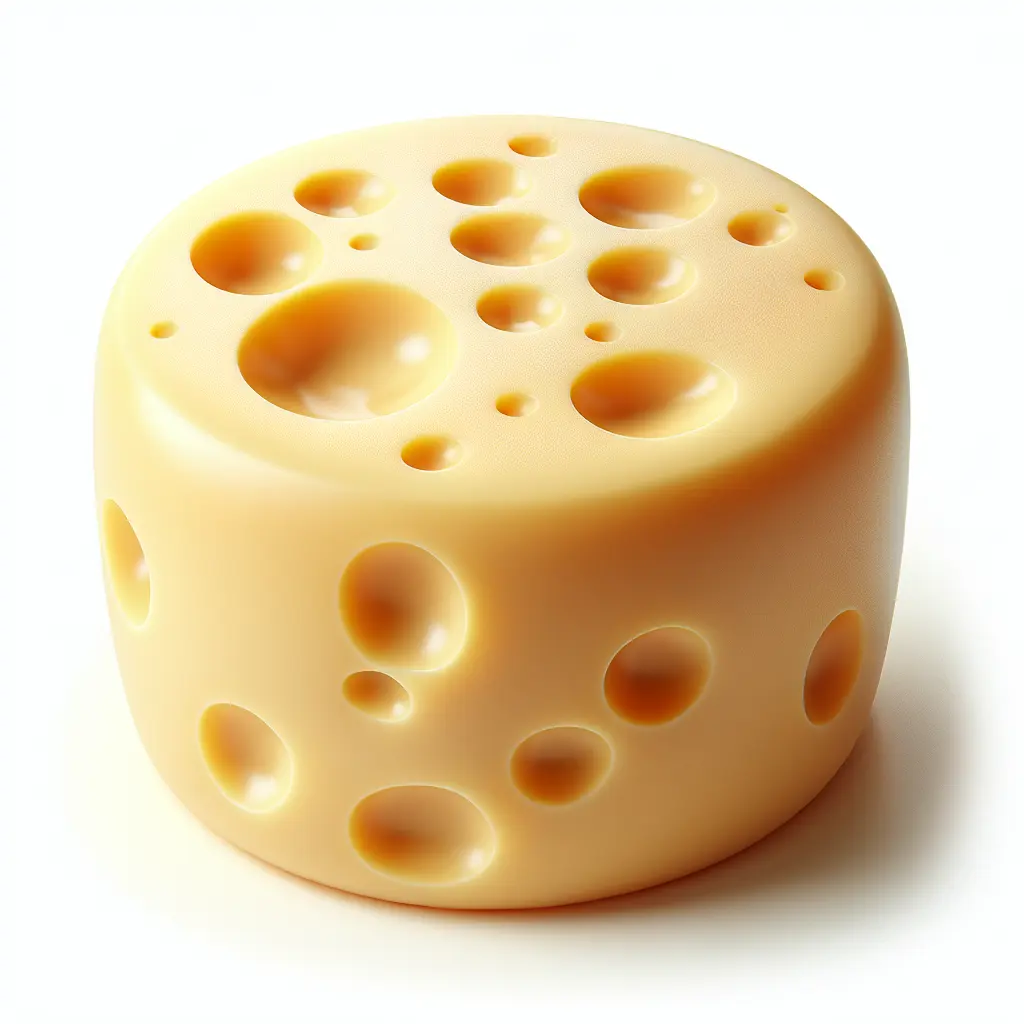Emmentaler: The Swiss Cheese with Big Holes
Emmentaler is a Swiss cheese known for its large holes and nutty flavor. It is made from cow's milk and has a semi-hard texture.
Emmentaler is one of the most popular cheeses in the world and is used in a variety of dishes, including sandwiches, salads, and fondue. It is also a popular snack cheese and can be enjoyed on its own.
The History of Emmentaler
The history of Emmentaler dates back to the 12th century. It is believed that the cheese was first made in the Emmental Valley in Switzerland. The cheese quickly became popular and was soon being exported to other countries.
In the 19th century, Emmentaler production was industrialized. This led to a decline in the quality of the cheese, as producers began to use lower-quality milk and cut corners in the production process.
In the 20th century, there was a renewed interest in traditional Emmentaler production methods. Today, there are a number of small-scale producers who are making high-quality Emmentaler cheese using traditional methods.
How Emmentaler Is Made
Emmentaler is made from cow's milk that has been heated to a temperature of 32 degrees Celsius. The milk is then coagulated with rennet, which causes the milk proteins to form curds.
The curds are then cut into small pieces and cooked until they reach a temperature of 54 degrees Celsius. The curds are then pressed into molds and left to mature for a period of at least 4 months.
During the maturation process, the cheese is turned and washed regularly. This helps to develop the cheese's flavor and texture.
The Nutritional Value of Emmentaler
Emmentaler is a good source of protein, calcium, and vitamin B12. It is also a good source of riboflavin, phosphorus, and zinc.
One ounce of Emmentaler contains the following nutrients:
- Calories: 111
- Protein: 7.6 grams
- Fat: 8.8 grams
- Carbs: 0.4 grams
- Fiber: 0 grams
- Sugar: 0 grams
The Health Benefits of Emmentaler
Emmentaler is a healthy cheese that can offer a number of health benefits. The protein in Emmentaler can help to build and maintain muscle mass. The calcium in Emmentaler can help to strengthen bones and teeth. The vitamin B12 in Emmentaler can help to improve energy levels and mood.
Emmentaler is also a good source of probiotics, which are beneficial bacteria that can help to improve gut health. Probiotics can help to reduce the risk of diarrhea, constipation, and other digestive problems.
How to Enjoy Emmentaler
Emmentaler is a versatile cheese that can be enjoyed in a variety of ways. It can be eaten on its own, as a snack or as part of a meal. It can also be used in sandwiches, salads, and fondue.
Emmentaler is a popular cheese for melting, as it has a smooth, creamy texture. It is often used in grilled cheese sandwiches, macaroni and cheese, and other dishes that require melted cheese.
Conclusion
Emmentaler is a delicious and nutritious cheese that can be enjoyed in a variety of ways. It is a good source of protein, calcium, and vitamin B12, and it can offer a number of health benefits. Whether you are enjoying it on its own or as part of a meal, Emmentaler is sure to please.
How many calories are in Emmentaler?
Each 1 oz of Emmentaler contains 111 calories.
Emmentaler Nutritional Information
| Nutrient | Amount per 1 oz (28g) |
|---|---|
| Calories | 111 Calories |
| Protein | 7.6g |
| Fat | 8.8g |
| Saturated Fat | 5.2g |
| Cholesterol | 0.026mg |
| Carbohydrates | 0.4g |
| Dietary Fiber | 0g |
| Sugar | 0g |
| Sodium | 0.053mg |
| Potassium | 0.0204mg |
| Calcium | 0.252mg |
| Iron | 0mg |
